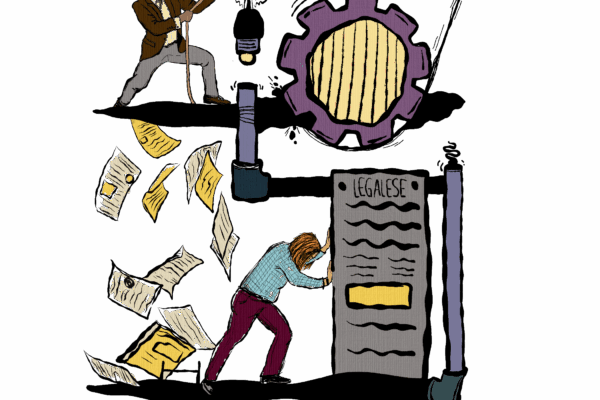This Op-Ed was originally published in the Portland Business Journal. You can access the original version at this link.
Elizabeth Hayes
This article is one of an occasional series exploring the promise and pitfalls of Measure 110.
Public defenders, who are already stretched thin, could not bear the added burden if Measure 110 is repealed or low-level drug possession is recriminalized, said Grant Hartley, director of the Multnomah County Metropolitan Public Defender office.
“The entire system is overburdened, and the idea that it can handle thousands more low-level cases is not feasible,” Hartley said in a Thursday interview. “If we were to recriminalize in this atmosphere, those individuals charged would go unrepresented.”
Measure 110, which voters passed in 2020 to both decriminalize low-level drug possession and directed a portion of marijuana tax revenue to treatment and recovery services, has come under fire. Either full or partial repeal efforts are afoot. Public sentiment has soured toward the measure, which has been blamed, or scapegoated, for an increase in overdose rates and public use.
As Hartley sees it, rolling back Measure 110 would simply make matters worse.
A 2021 report from the American Bar Association found that the state had a deficit of 1,300 defenders on top of the 600 then in place. Although the Legislature has since invested $90 million in the system, it was not enough, Hartley said.
“Everyone agrees that’s a starting point, but it’s not going to address the full issue,” Hartley said.
His objections to recriminalization go beyond capacity concerns, however.
One of the more prominent efforts to amend M110, spearheaded by former Department of Corrections Director Max Williams, emphasizes diversion into treatment. Since diversion is optional, many of those offenders will need representation anyway. Also, diversion is not the same motivator for someone arrested for low-level drug possession as it is for someone arrested for driving under the influence, Hartley said.
“People going through DUII diversion have so much more stability than somebody on the streets with a substance use disorder,” he said. “It’s apples and oranges. The idea that a dismissal is going to motivate somebody in the depths of a substance use disorder, when their friends and family have already tried, or that a Class A misdemeanor is going to motivate them to change, is ignorant of the depths of addiction.”
Similar programs in the past generated poor results, he said.
“Our service system is the same one we have, and it’s just going to be churning people in and out of jail with no effect,” Hartley said.
The behavioral health treatment system also has been underfunded for decades in Oregon, and the state has ranked at or near the bottom among states for access. Enter Measure 110, which was slow to roll out and coincided with the Covid-19 pandemic, an influx of illicit fentanyl and an increase in homelessness and public drug use.
“Folks are seizing on that impatience and saying we should go back to the way it was,” Hartley said. “We tried to deal with low-level possession for decades in the criminal legal system and it didn’t work. It’s not just about capacity, but we know it doesn’t work, so why would we deflect those resources? All we’re doing is churning people in and out of jail.”
The wrap-around services, supportive housing, peer support and harm-reduction funded by Measure 110 are critical, he said.
“Harm reduction is how you engage people in treatment,” he said. “Harm reduction is how you build those relationships.”
One aspect of Measure 110 that has not worked well, however, is the citation system, mainly because of the culture of distrust between police and individuals using drugs, Hartley said.
“For law enforcement, they’ve seen drug use as criminal and to expect them to transition on a dime to have them be ambassadors for treatment programs is an unrealistic and unfair expectation of police officers, not to mention the fact that many people with SUDs have a distrust of police,” Hartley said. “The message of engagement, even if delivered effectively, may not land because of where it’s coming from.”
He said it would be more effective to have “armies” of case managers and peer mentors going out into the community, to the streets and homeless camps, and building relationships that will lead to people obtaining treatment.
“A case worker will go back to them and ensure they have their basic needs,” Hartley said. “If that person slips and relapses, somebody to go out and meet that person and bring them back in.


